| Over
6,000
Political Scientists Gather in Washington, DC...1 of 3 > |
| Aug. 29-31, 2014 -- The American Political Science Association held its 110th Annual Meeting at the Wardman Park Hotel. Over six thousand political scientists from around the world participated in more than 800 panels and plenary roundtables, they presented posters, surveyed offerings in the exhibit hall, and networked. The theme of the meeting was "politics after the digital revolution." |
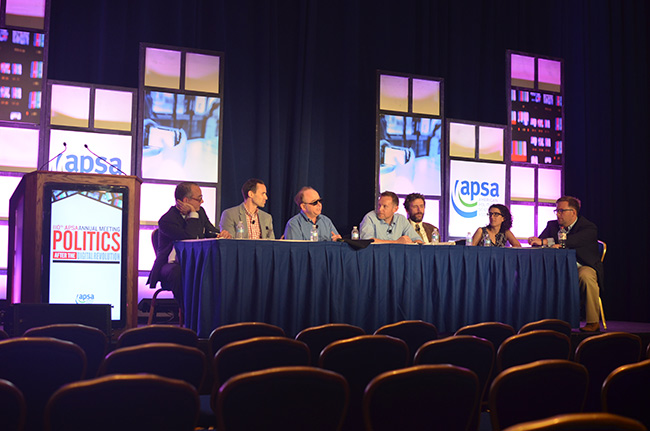 |
| A plenary roundtable titled
"Reprise on Big Data, Causal Inference, and Formal Theory: Incompatible
Trends in Political Science" was pretty academic, but some of the other
plenaries were more accessible. |
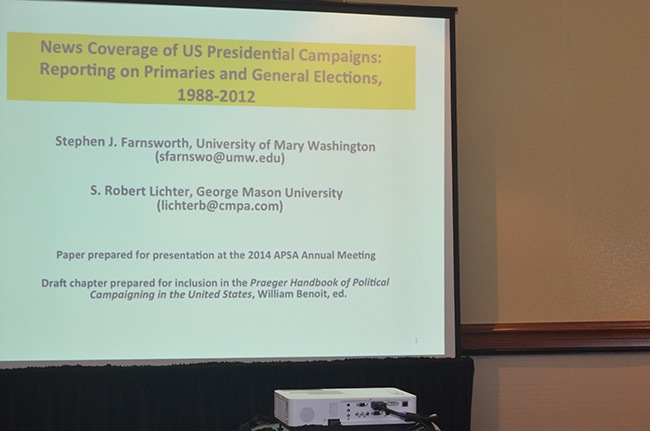 |
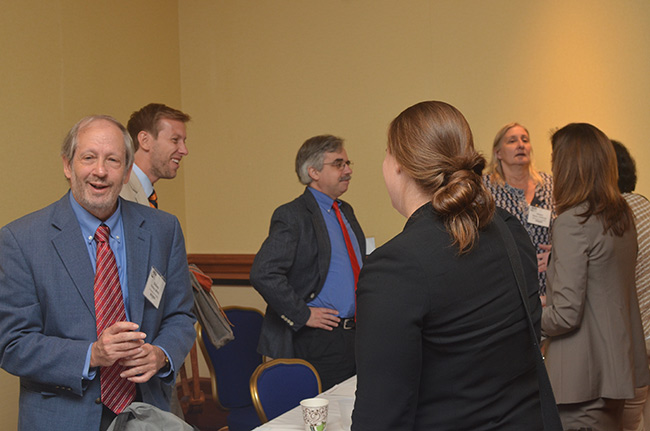 |
| Stephen J. Farnsworth, professor
at the University of Mary Washington (center with glasses), presented a
paper on
"News Coverage of US Presidential Campaigns: Reporting on Primaries and
General Elections, 1988-2012," co-written with Robert Lichter of the
Center for Media and Public Affairs, during a theme panel on "Executive
Communications and Campaigning in Digital Age." |
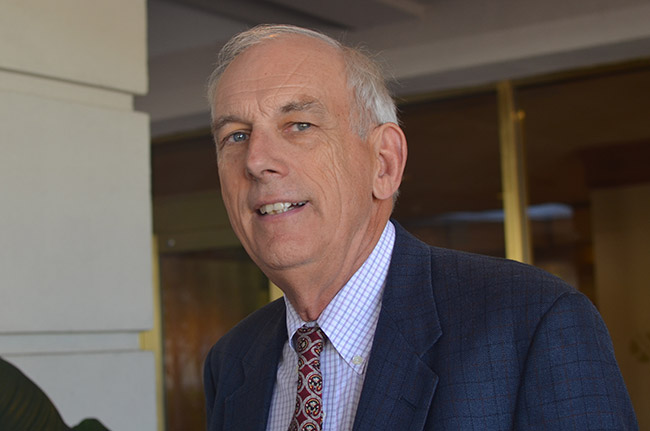 |
| Robert Keohane, professor of
international affairs at Princeton's Woodrow Wilson School of Public
and International Affairs, delivered the James Madison Award Lecture,
speaking on the politics of climate change. |
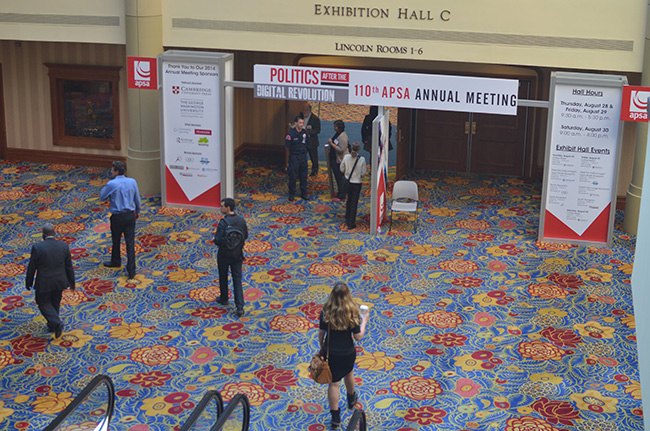 |
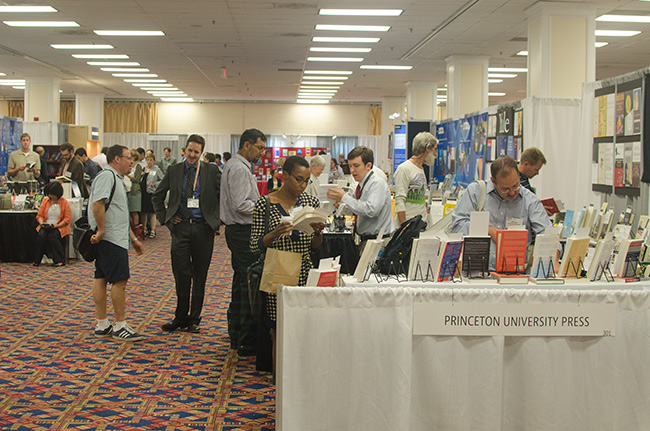 |
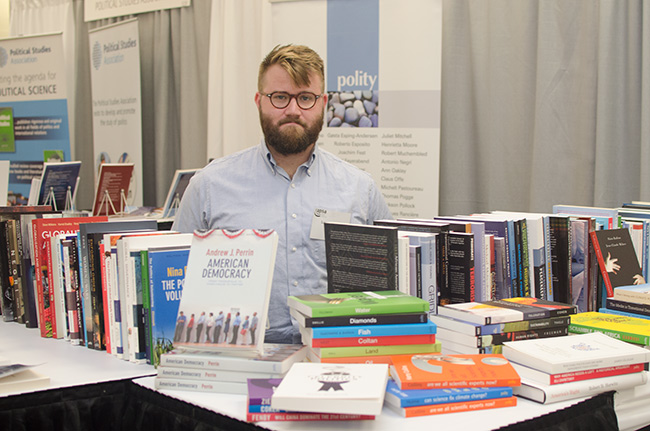 |
| Lucas Jones, publicist for
Polity Books. [more exhibit space] |
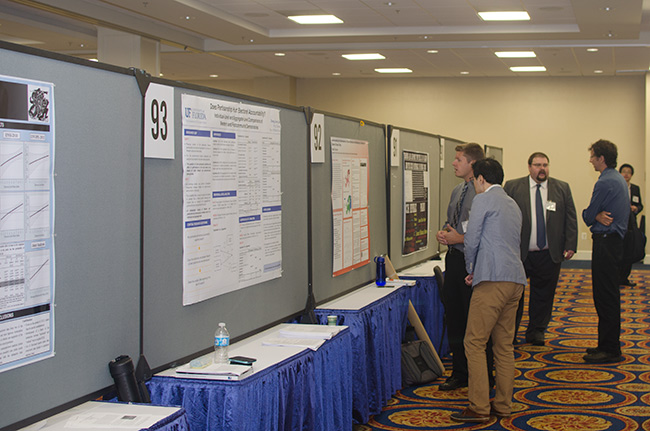 |
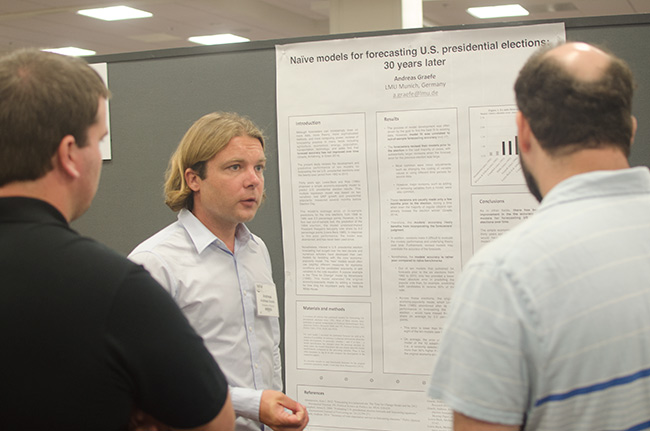 |
| Andreas Graefe, a research
fellow at LMU Munich in Germany, discusses his poster "Naive models for
forecasting U.S. presidential elections: 30 years later." Graefe
is one of the principal figures behind the PollyVote election forecasting
website. [more posters] |
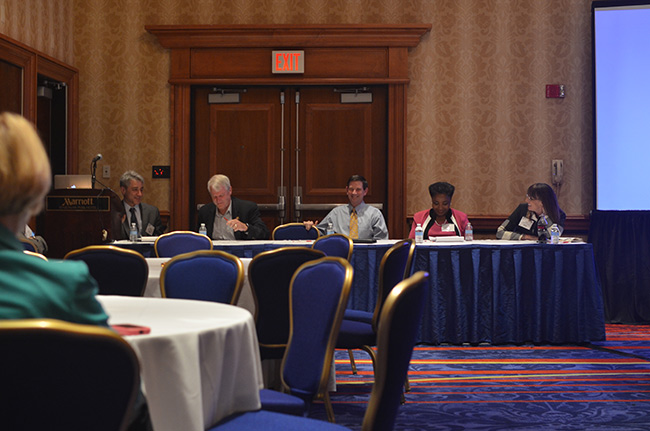 |
| The
APSA task force on public engagement met and reviewed the progress of
its work. The task force is trying to make political science
"more accessible, more relevant, and more valuable to more
people." For example, Lynn Vavreck, a professor at UCLA, talked
about her work contributing to the New
York
Times' "The Upshot." Carol
Swain, a professor at Vanderbilt University addressed ideological bias
in the political science community, suggesting that "anyone that isn't
liberal tends to be demonized." Former congressman Brian Baird,
now president of Antioch University Seattle, spoke of the need to "make
social science relevant." Baird drew from his experience on
Capitol Hill, stating that small changes drawn from social science, can
help make people's lives better without costing the government. The task force is looking at such ideas as starting a video library and creating a roster of political scientists willing to speak at occasional events. One small example seen at this meeting were two breaking news sessions, one on Ferguson and the other on Ukraine; the topics were selected just days before the meeting began. The task force released a 50-page report containing a dozen recommendations, and the 26-person council that governs the APSA has adopted the report; the next step is a much more detailed report, perhaps 300 pages, with case studies, interviews and analysis. Outgoing APSA president John Aldrich, a professor at Duke University, was prompted to initiate the task force after the U.S. Senate, in March 2013, adopted an amendment by Sen. Tom Coburn (R-OK) that would have prohibited use of federal funds for political science programs supported by the National Science Foundation except where they promote the "national security or the economic interests of the United States." |
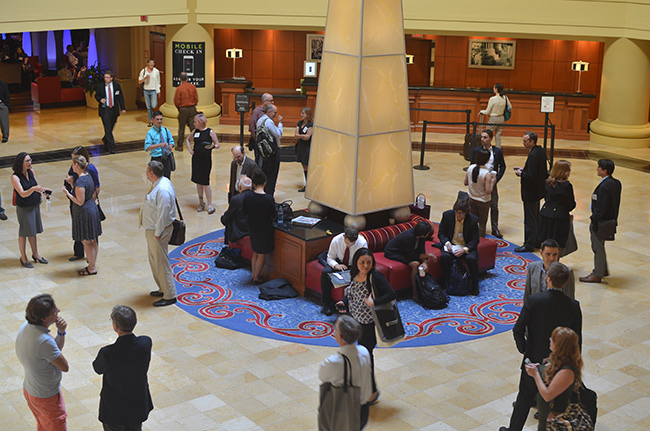 |
| An account of the APSA's 110th
Annual Meeting would not be complete without mention of the fire alarm
which went off at the Marriott Wardman Hotel at about 1:00 a.m. on
Saturday morning, forcing hundreds of guests outside. "You could
smell smoke," one attendee said, "There was a lot of chaos going
on." After several hours people were allowed back in the
building, water was distributed, and some people snuck back into their
rooms. However, around 6:30 a.m. people were again told they had
to leave their rooms. Finally around 7:45 a.m. they were allowed
to go back. Former congressman Baird jokingly referred to the
"toga party" of the evening before. Photos show people sitting
and lying down in corridors; others made their way across the street to
the Omni Shoreham and found furniture there. A grad student
commented that the episode had the interesting effect of equalizing
professors and grad students for a bit. |
| next > |

